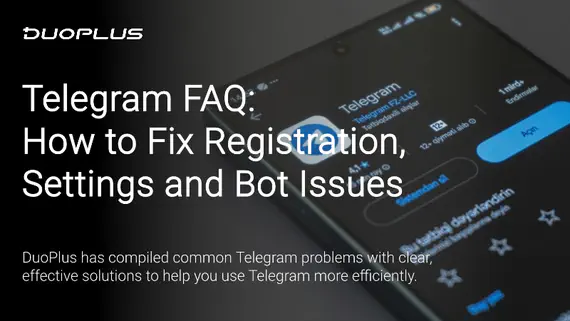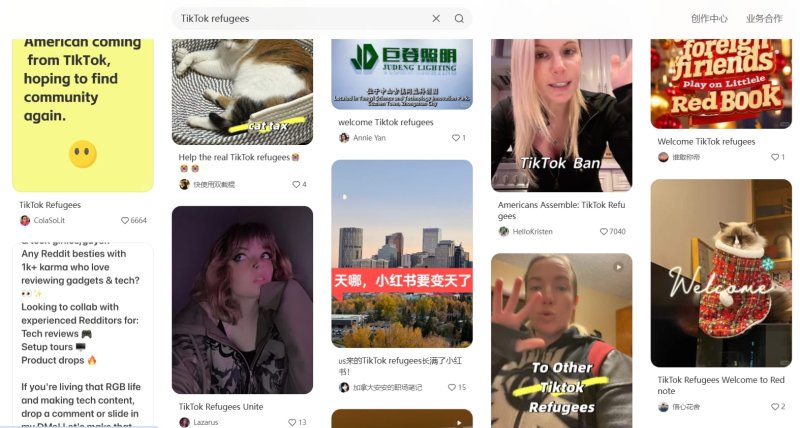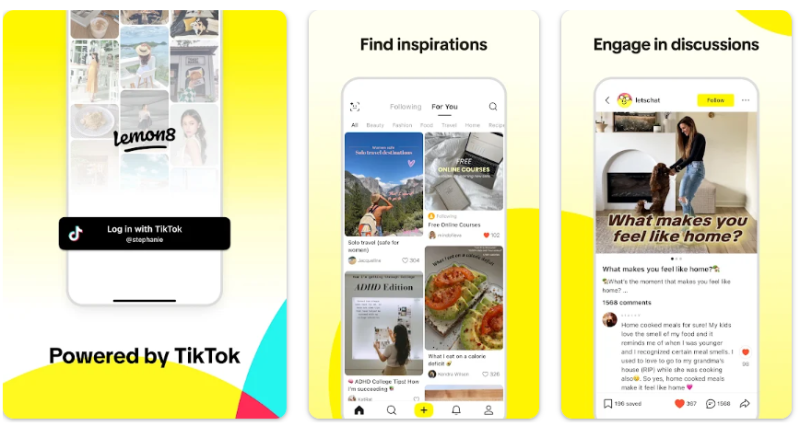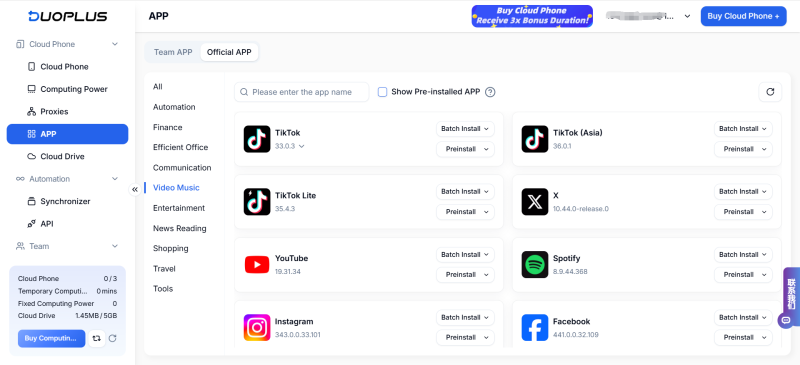
Telegram FAQ: How to Fix Registration, Settings and Bot Issues
Telegram has become one of the fastest-growing instant messaging tools globally, widely adopted for community …
Table of Contents
In recent days, many have noticed a wave of foreigners flooding into Xiaohongshu, calling themselves TikTok refugees, turning the content into a mix of Chinese and English. Many netizens exclaimed, "Where did this come from?" and "I can't tell which app I'm opening anymore."

Some users expressed confusion about why foreigners don't use overseas social media apps and instead post content on Xiaohongshu. In fact, Xiaohongshu's overseas popularity is related to the U.S. government's ongoing push for a forced sale order on TikTok. As the ban's effective date approaches, TikTok's future remains uncertain.
TikTok has a large user base and strong interactivity, making it one of the most popular short video platforms in the U.S. Users post various videos or live stream with goods, and many content creators monetize through TikTok. However, the U.S. government has always been skeptical of TikTok.The timeline of the TikTok ban is as follows:
In May 2023, the governor of Montana signed a bill banning TikTok downloads, but it was blocked by a federal judge.
In March 2024, the U.S. Congress passed a bill targeting TikTok, requiring ByteDance to divest control of TikTok within 165 days of the bill's enactment, or it would be removed. Trump publicly opposed the TikTok ban during an interview with CNBC.
In April 2024, the former U.S. president signed a bill requiring ByteDance to divest TikTok by January 19, 2025.
In May 2024, TikTok filed a lawsuit in the District Court of Columbia against the U.S. federal government to continue normal operations.
On December 6, 2024, the U.S. District Court of Columbia upheld the signed bill, ruling it "constitutional," and the ban remained in place. On December 9, TikTok filed an emergency motion with the federal court requesting a temporary injunction to prevent the ban from taking effect before a final ruling, but it was denied.
Trump requested the U.S. Supreme Court to temporarily halt the enforcement of the TikTok forced sale order, hoping to resolve the TikTok issue through political means after taking office.
On January 10, 2025, the U.S. Supreme Court heard oral arguments from both sides on the "sell or ban" issue, lasting two and a half hours.
January 19, 2025, is the final deadline for TikTok's forced sale.
On January 10, the U.S. Supreme Court held a hearing on the TikTok ban, where judges heard oral arguments from three parties, focusing on whether the ban would be enforced as scheduled and if there were alternative solutions.
Multiple Perspectives on the "TikTok Ban"
1. Support for the Ban
The U.S. Department of Justice and others support the "sell or ban" order, believing TikTok can access a large amount of U.S. user data (from location to personal information), posing a threat to U.S. data security. Some U.S. government officials also suggested TikTok might share data with the Chinese government, allowing it to influence U.S. public opinion through content manipulation, endangering U.S. national security.
2. Opposition to the Ban
The TikTok platform strongly opposes the forced order, stating that U.S. user data is stored on Oracle servers in Virginia, and the platform has not engaged in improper use of U.S. user data. They also argue that the ban violates the First Amendment of the U.S. Constitution, restricting citizens' freedom of speech.
Regarding the "sell or ban" bill, ByteDance has repeatedly stated, "We will not sell TikTok," implying that if the ban is enforced, TikTok will cease operations in the U.S.
TikTok users strongly oppose the forced order, believing the U.S. government is restricting citizens' rights to freely use social media to express themselves. TikTok is crucial for U.S. users, primarily for freedom of speech, and its algorithm and creative ecosystem provide opportunities for content monetization.
Foreign media reported on the January 10 hearing, with the overall view leaning towards the ban being enforced as scheduled, as judges may consider national security concerns more pressing.
Reportedly, two Democratic senators urged the U.S. Congress and President Biden to extend the TikTok ban's effective date this week, but whether this move can change TikTok's situation remains to be seen.
Regarding the "sell or ban" bill, three possible outcomes may arise:
① TikTok Loses the Case
If the U.S. Supreme Court rules the ban valid, ByteDance must sell TikTok by January 19, 2025, for TikTok to continue operations. However, ByteDance has clearly stated it will not sell the business, so the subsequent result will be TikTok's removal from U.S. app stores. Some users who retain the app can continue using it, but without ByteDance's technical support, the app will gradually become inoperable in the U.S.
② Ban Extension
Due to the complexity of the TikTok issue, involving multiple interests, and the incoming U.S. President Trump expressing a "political solution" attitude, the Supreme Court may consider various opinions and decide to extend the ban's enforcement.
③ TikTok Wins the Case
If the Supreme Court finds the ban violates the First Amendment, TikTok will return to normal operations without selling its business, and U.S. users can continue using the TikTok platform.

Facing the U.S. government's firm stance on enforcing the ban, ByteDance, TikTok's parent company, is not only using legal means to appeal but also seeking alternative solutions to mitigate the impact of the ban.
Lemon8, an overseas lifestyle sharing app under ByteDance, launched in the U.S. in 2020, focuses on photo sharing and later added short videos and shopping links, attracting some overseas users.
During the TikTok ban bill release, Lemon8 and TikTok merged accounts, allowing creators to access Lemon8 directly with their TikTok accounts, leading some netizens to speculate that ByteDance intends to break down the barriers between the two platforms and migrate TikTok users to Lemon8.
Recently, users found that Lemon8 has become one of the top-ranked free apps in the Apple App Store, and as the ban's enforcement date approaches, Lemon8 may become TikTok's alternative in the U.S.
Similarly, cross-border e-commerce sellers using TikTok in the U.S. need to stay informed and plan future cross-border strategies in advance, such as TikTok Shop's recent announcement of a Mexico site, close to the U.S., which may become a temporary overseas target market for cross-border sellers.
If the ban is enforced on January 19, will U.S. users really be unable to use TikTok anymore?
TikTok will be removed from U.S. app stores, but it can still operate normally in other countries. With appropriate tools, users can continue using TikTok.
Like DuoPlus Cloud Phone, which is committed to providing quality cross-border services, supporting over 100 overseas apps, including TikTok and Lemon8, the cloud phone generates corresponding parameters based on configuration agents, allowing both cross-border sellers and U.S. users to easily run TikTok, supporting cross-border e-commerce, overseas social media marketing, and other application scenarios.

How will the U.S. Supreme Court rule? What will be TikTok's ultimate fate?
Let's wait together for the final outcome.
Thank you for reading this [DuoPlus Cloud Phone Cross-border Special]. Quality accounts and business development rely on operational skills, and we will continue to bring more quality content and cross-border insights and information sharing.
Enter the link https://duoplus.saaslink.net/blogboke to register and receive a one-month cloud mobile service,you can it directly!You can find【DuoPlus DuoPlus】on Telegram, where you can obtain an exclusive redemption code and gain trial access!
telegram:https://t.me/DuoPlus6
DuoPlus Cloud Phone
Protect your multiple accounts from being

Telegram has become one of the fastest-growing instant messaging tools globally, widely adopted for community …

In recent years, competition in cross-border e-commerce has become increasingly fierce, with significant challenges in …
No need to purchase multiple real phones.
With DuoPlus, one person can operate numerous cloud phones and social media accounts from a single computer, driving traffic and boosting sales for you.
